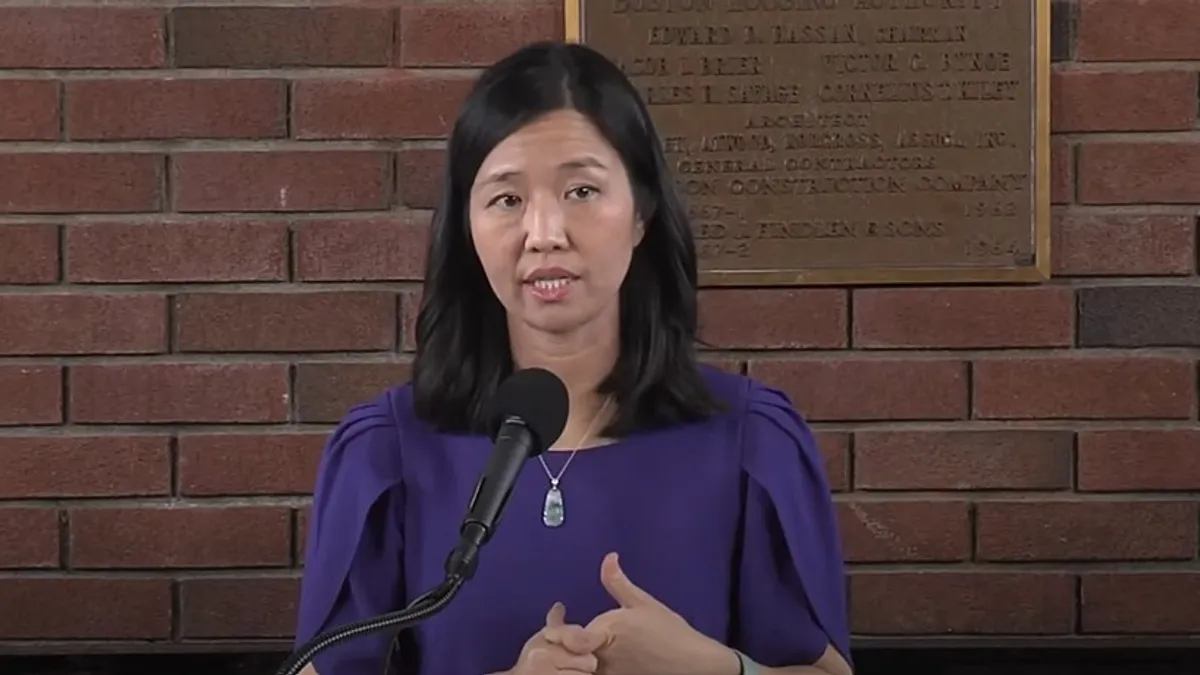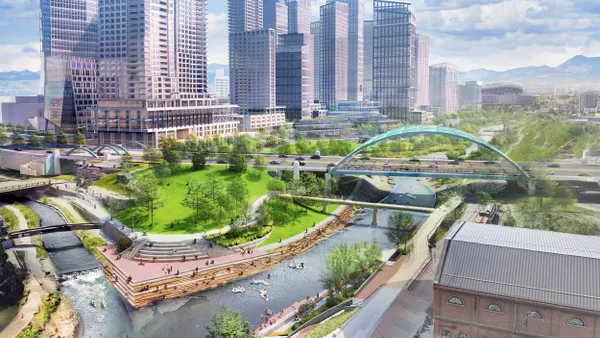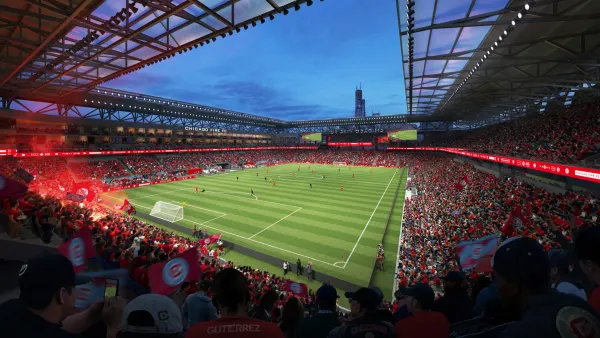Dive Brief:
- Boston will electrify seven federal public housing buildings with the city’s first networked geothermal pilot project, Mayor Michelle Wu announced on Jan. 25.
- Networked geothermal uses underground pipes to heat and cool buildings in a highly efficient manner by pulling heat from the ground in the winter and transferring indoor heat to the ground to cool buildings in the summer. Boston’s project is part of a demonstration program led by the gas and electric utility National Grid.
- As the city tackles climate change, “it is vital that our public housing communities come first,” Boston Housing Authority Administrator Kenzie Bok said. The project will showcase geothermal technology for multifamily housing, Bok added, as the housing authority works toward a 2030 goal of being fossil fuel-free.
Dive Insight:
Decarbonization experts and advocates are increasingly calling for neighborhood-scale building decarbonization, which gets entire groups of buildings off the gas system at once, in lieu of the current approach that relies on consumers electrifying appliances one at a time.
Cities and utilities are still figuring out exactly how to accomplish that, however. National Grid has only undertaken one other project in Massachusetts, in Lowell, through its networked geothermal demonstration program, which launched in 2021. Construction on the Lowell system broke ground in April 2023.
“Key to transitioning away from fossil fuels is to develop and expand reliable alternatives,” said Lisa Wieland, president of National Grid New England, in a statement. “Networked geothermal has significant potential to be a solution, especially for larger buildings and campuses.”
Construction on Boston’s project is planned for 2025 and will require no more than a few days of temporary relocation for residents, the Boston Housing Authority said in a news release. The design and resident engagement processes will begin this year.
The networked geothermal system, which includes ground-source heat pumps, will replace an aging gas boiler loop that serves 129 units at the Franklin Field Apartments. The system will provide in-unit cooling, meaning residents will no longer have to purchase window air conditioning units to stay comfortable during hot days.
A jigsaw puzzle of resources will financially support the project. The Boston Housing Authority will contribute funds from the federal Capital Fund Program, which annually provides public housing authorities nationwide with money for housing development, financing, modernization and management improvements. The project will leverage state programs to fund energy efficiency improvements at the public housing buildings.
The City of Boston also received $1 million through a U.S. Environmental Protection Agency grant program, which it will use to retrofit 80 gas stoves to electric in the Franklin Field Apartments and another affordable housing development nearby. Gas stoves have been shown to pose health risks to residents, and the city is teaming up with Boston University to study the indoor air quality impacts of the retrofit project.











